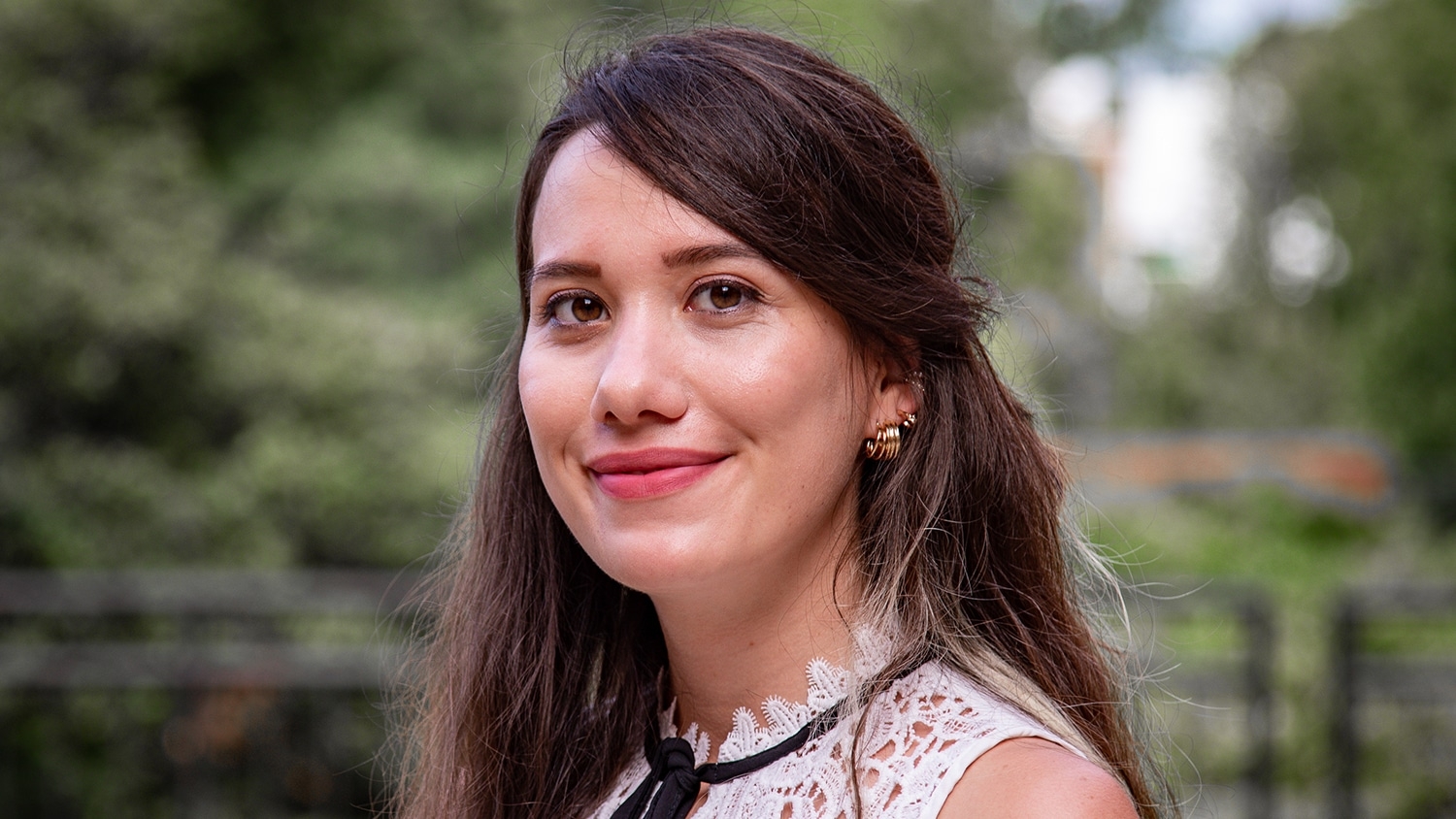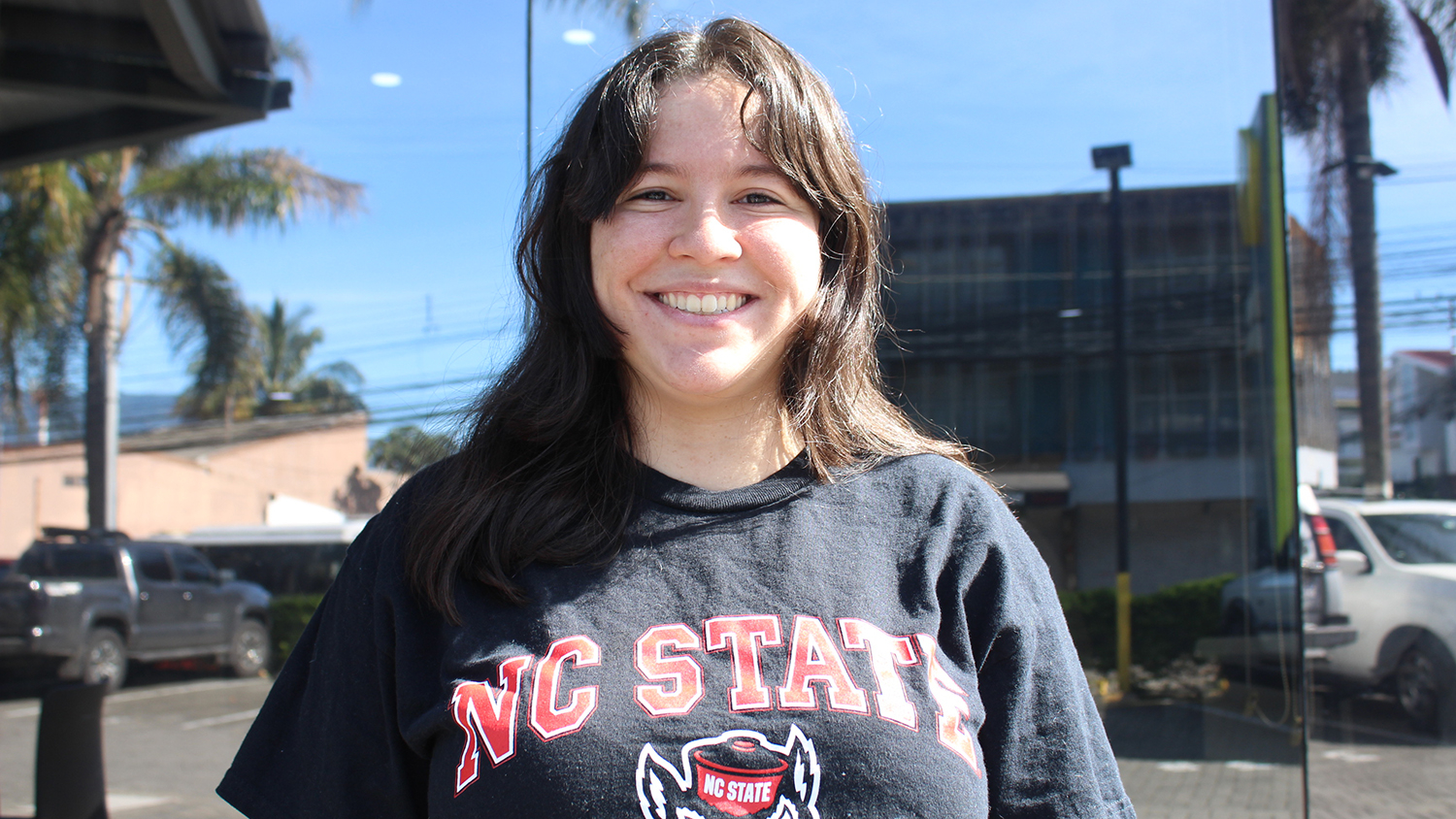Degree Type: Ph.D.
Expected Graduation Date: August 2024
School/Department: Wilson College of Textiles, NC State University
Program/Focus: Fiber and Polymer Science
Research Project: Charging Behavior of Nonwovens
Professor/Faculty Advisor: Behnam Pourdeyhimi, Ph.D., NWI/NC State University; Hooman Tafreshi, Ph.D., NC State University
How did you come to have an interest in nonwovens?
During my undergraduate studies at Istanbul Technical University, I developed a strong interest in researching medical topics. As I delved deeper into the discipline of textile engineering, I had the opportunity to explore various areas and discover my intellectual affinity for nonwovens. What particularly captivated me about nonwoven science was its tangible applications, as the solutions within this field arose from practical challenges. This realization sparked a motivation within me to pursue further studies and contribute meaningful research to address these real-world issues.
The versatility, lightweight nature, high strength, and unique properties of nonwovens make them an attractive alternative to conventional textiles. The ability to tailor their properties by modifying parameters like fiber type, density and/or bonding techniques, opens up exciting possibilities for innovation.
Why are your research/findings particularly important/compelling for nonwovens applications?
Respirator research holds significant importance for nonwovens applications, and my specific focus is on investigating the parameters that impact the efficiency and pressure drop of respirators. The global COVID-19 pandemic has underscored the critical role of respirators in preventing the spread of diseases and protecting public health. By achieving stable efficiency over extended wear times, we can substantially decrease the incidence of epidemic illnesses.

One of the key objectives of my research is to identify optimized parameters for filter production. Understanding the factors that affect filter performance will provide valuable insights into enhancing the stability and efficiency of filters. This knowledge will support the pursuit of preventing the potential fatal consequences of epidemic illnesses, as it allows for the development of filters that maintain consistent and reliable performance in various storage conditions, such as temperature and humidity fluctuations.
To address these challenges, I am engaged in comprehensive testing to determine the optimum values for these critical parameters. By systematically evaluating the efficiency and pressure drop of respirator filters under different scenarios, we can gain a deeper understanding of their behavior and optimize their design for superior performance. This research is intended to contribute to the development of advanced nonwoven materials that provide enhanced filtration efficiency, improved breathability and increased comfort for respirator wearers.
In addition to the crucial aspect of protection, there are economic implications to consider as well. By achieving stability in filter efficiency and extending their lifespan without compromising performance, the costs associated with frequent filter replacements can be significantly reduced. This benefits not only individuals relying on respiratory protection, but also healthcare systems, organizations and industries that provide respiratory equipment to their personnel.
Where do you see yourself upon completion of your studies? Where do you see yourself 5-10 years into the future as you progress in your career?
In the near term, my career goal as a Ph.D. student is to complete my studies with excellence and contribute valuable research to the field of nonwovens. Upon completion of my studies, I envision myself working in an interdisciplinary research and development (R&D) or production area. I aspire to gain extensive experience in the industry, and I plan to work on diverse projects, collaborate with multidisciplinary teams and contribute to the development of cutting-edge technologies and products.
By acquiring a wide range of industrial experience, I envision transitioning back to academia, motivated by a desire to share my knowledge and experiences with future generations of researchers and contribute to the advancement of the field. I aspire to join a reputable academic institution as a professor or researcher where I can engage in teaching, mentorship and impactful research.
When you are not studying and doing your nonwovens research project, what are your personal interests, hobbies … any activities you would like to highlight?
I have a diverse range of hobbies, including hiking, reading personal growth and psychology books, acrylic painting, running, practicing yoga, cooking, baking and creating quilling art.
This story was originally published by The Nonwovens Institute.
This post was originally published in Wilson College of Textiles News.
- Categories:



